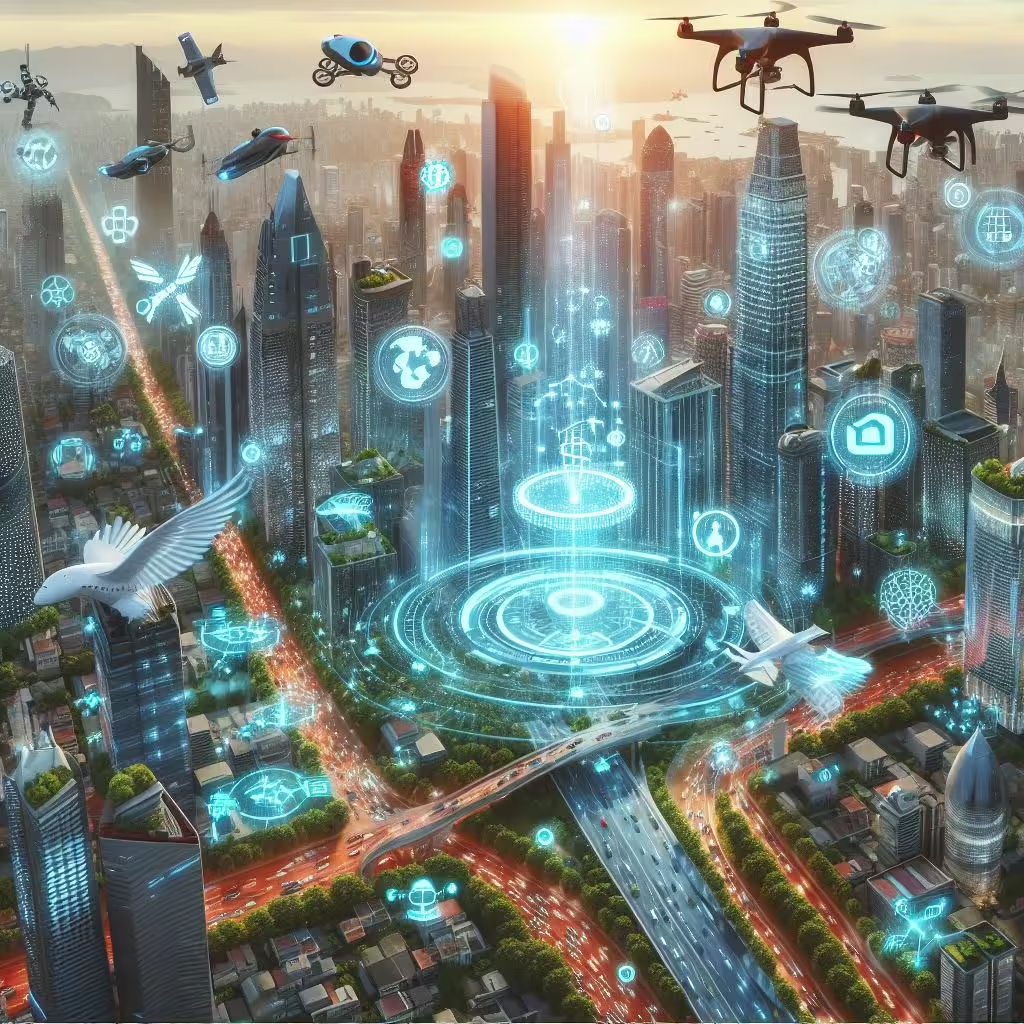Artificial Intelligence (AI) has rapidly emerged as a game-changer in various industries, revolutionizing the way we live, work, and interact. With its ability to process vast amounts of data, learn from patterns, and make intelligent decisions, AI is poised to reshape the world in the next few years. In this article, we will explore some key areas where AI is set to make a significant impact. Free Image Generating AI Websites: A List and How They Work
1. Healthcare
The healthcare industry stands to benefit immensely from AI advancements. AI-powered algorithms can analyze medical data, identify patterns, and assist in diagnosing diseases more accurately and efficiently. This technology can also help in predicting outbreaks, improving patient monitoring, and enhancing personalized treatment plans. With AI, healthcare professionals can provide better care, leading to improved patient outcomes.
2. Transportation
Autonomous vehicles are on the horizon, and AI is the driving force behind this transformation. Self-driving cars can reduce accidents caused by human error, enhance traffic management, and improve fuel efficiency. Additionally, AI can optimize logistics and delivery routes, resulting in cost savings and reduced carbon emissions. The integration of AI in transportation will not only make our roads safer, but also streamline our daily commutes.

3. Education
AI has the potential to revolutionize education by providing personalized learning experiences. Intelligent tutoring systems can adapt to individual student needs, offering tailored content and feedback. AI can also automate administrative tasks, freeing up educators’ time to focus on teaching. Furthermore, AI-powered educational tools can facilitate language learning, enhance creativity, and promote critical thinking skills. The integration of AI in education will enable a more inclusive and effective learning environment. Could this be the reason why Sam Altman was fired from OpenAI?
4. Finance
The financial sector is already leveraging AI to streamline operations and improve customer experiences. AI-powered chatbots can provide real-time customer support, reducing response times and enhancing satisfaction. Fraud detection algorithms can analyze patterns and identify suspicious activities, mitigating risks. AI can also assist in making more accurate financial predictions, optimizing investment strategies, and improving risk management. The integration of AI in finance will lead to more efficient and secure financial services.
5. Manufacturing
AI-powered automation is transforming the manufacturing industry. Robots equipped with AI capabilities can perform complex tasks with precision and speed, leading to increased productivity. AI algorithms can analyze production data in real-time, identifying bottlenecks and optimizing processes. Predictive maintenance powered by AI can reduce downtime and improve overall equipment effectiveness. The integration of AI in manufacturing will result in more efficient and cost-effective production processes.
6. Environmental Sustainability
AI has the potential to address pressing environmental challenges. Machine learning algorithms can analyze climate data, predict weather patterns, and assist in developing strategies to mitigate the impact of climate change. AI-powered energy management systems can optimize energy consumption, reducing waste and carbon emissions. Additionally, AI can aid in wildlife conservation efforts by analyzing data and identifying patterns that help protect endangered species. The integration of AI in environmental sustainability will contribute to a greener and more sustainable future.
The impact of AI on the world in the coming years is a fascinating topic. AI has the potential to transform various aspects of human society, such as education, health, economy, environment, and security. Some of the possible impacts are:
- AI could enhance the quality and accessibility of education, by providing personalized learning, adaptive assessment, and intelligent tutoring systems.
- AI could improve the diagnosis and treatment of diseases, by analyzing medical data, discovering new drugs, and assisting doctors and nurses.
- AI could boost the productivity and innovation of the economy, by automating tasks, optimizing processes, and creating new products and services.
- AI could help mitigate the effects of climate change, by monitoring and modeling environmental phenomena, reducing greenhouse gas emissions, and promoting renewable energy sources.
- AI could enhance the security and defense of nations, by detecting and preventing cyberattacks, improving surveillance and intelligence, and developing autonomous weapons.
However, AI also poses some challenges and risks, such as ethical, social, legal, and political issues. Some of the possible challenges are:
- AI could create ethical dilemmas, such as the responsibility and accountability of AI systems, the fairness and transparency of AI decisions, and the privacy and security of AI data.
- AI could affect the social and cultural aspects of human society, such as the impact on human values, norms, and identities, the relationship between humans and machines, and the diversity and inclusion of AI stakeholders.
- AI could raise legal and regulatory questions, such as the ownership and protection of AI intellectual property, the liability and insurance of AI damages, and the governance and oversight of AI development and deployment.
- AI could influence the political and geopolitical dynamics of the world, such as the balance of power and influence among nations, the potential for conflict and cooperation, and the role of international organizations and norms.
Therefore, the impact of AI on the world in the coming years is likely to be complex and multifaceted, requiring careful and collaborative efforts from various actors and sectors to ensure that AI is used for good and not evil. 🌎
: Artificial Intelligence in Education: Challenges and Opportunities for Sustainable Development : Artificial Intelligence in Health: Current Applications and Future Directions : Artificial Intelligence and the Future of Work : Artificial Intelligence and Climate Change : Artificial Intelligence and International Security : Ethics Guidelines for Trustworthy AI : Social and Human Implications of Artificial Intelligence : Legal and Regulatory Implications of Artificial Intelligence : Political and Geopolitical Implications of Artificial Intelligence

